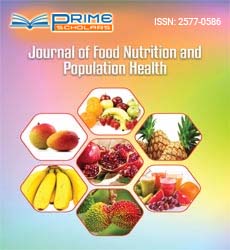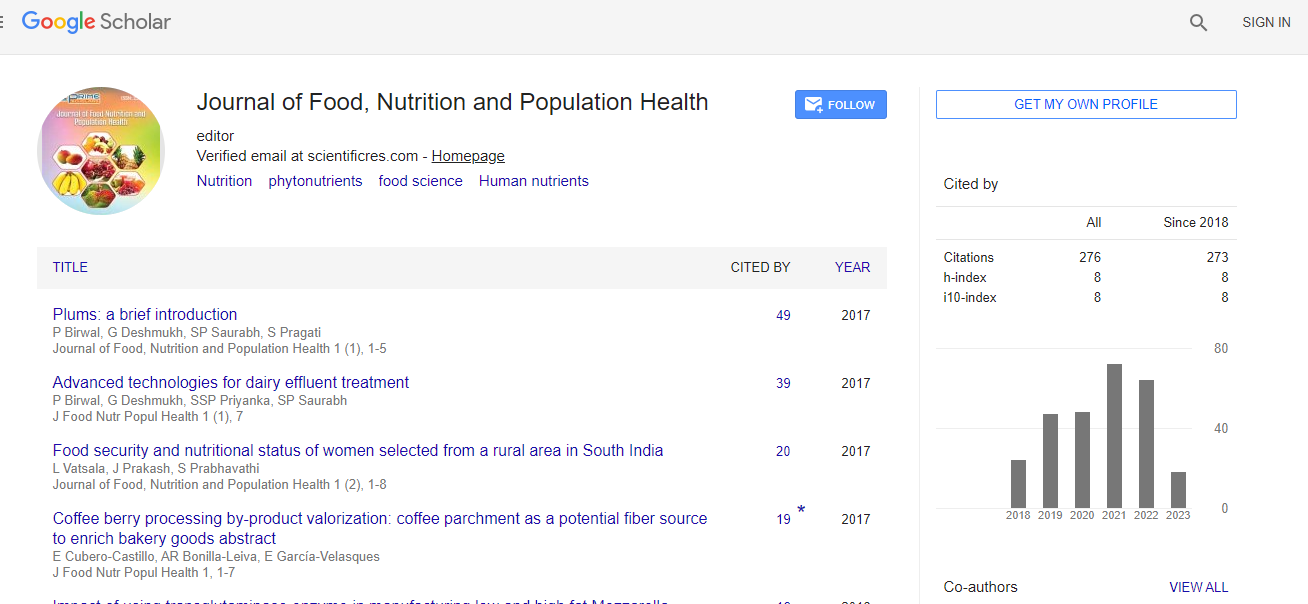Commentary - (2023) Volume 7, Issue 1
Severe Malnutrition in a Transdisciplinary Eating Disorders Inpatient Unit
Noriyuki InakiI*
Department of Health and Allied Sciences, University Paris Descartes, France
*Correspondence:
Noriyuki InakiI,
Department of Health and Allied Sciences, University Paris Descartes,
France,
Email:
Received: 02-Jan-2023, Manuscript No. ipjfnph-23-15602;
Editor assigned: 04-Jan-2023, Pre QC No. ipjfnph-23-15602 (PQ);
Reviewed: 18-Jan-2023, QC No. ipjfnph-23-15602;
Revised: 23-Jan-2023, Manuscript No. ipjfnph-23-15602 (R);
Published:
30-Jan-2023, DOI: 10.21767/2577-0586.7.01.05
Description
This examined the incidence of ill health in established adult companions entering the ED in metropolitan Ireland, variables associated with lack of a healthy diet, and the ratio of hunger to days and 6 months after discharge. The most important Irish study ever. More than 1 in 3 of her established adults who participated in this Irish ED was at risk of being classified as ill or malnourished. Inevitably, these more experienced adults are frail, at risk of unfriendly outcome, have fallen within the last 90 days, have medical clearance within the last 6 months, and are less likely to perform and reported low personal satisfaction. Temporarily, hunger was associated with longer stays in the emergency room but more likely to be discharged home. It was associated with a further decline in grades, a more serious commitment to clinical support, and a greater likelihood of acceptance into the nursing home office. Half a year later, an equivalent finding was revealed. There are not many distributed studies showing a prevalence of disease among more experienced hospitalized adults in Ireland. In a multisite observational study, the prevalence of hunger among more established adults admitted to the emergency department was 16%, and the risk of malnutrition was 42%. The high incidence of hunger in the emergency department may result from further deterioration of nutritional status due to hospitalization. This is due to several factors, including severe and persistent irritation, inflexible mealtimes, fasting, lack of energy and protein in feast meals, and lack of awareness of the increased risk of nutritional deficiencies in hospital settings. It may be related. In an Irish group of experienced adults, the incidence of lack of a healthy diet was reported to occur at a rate of 10.7% over 2 years. In each review, the authors argue that prioritizing nutritional screening to identify and monitor experienced adults prone to poor health in clinical practice should be integrated into overall health strategies.
Assessing for ailing health is an important step in recognizing and distinguishing between malnutrition risks and judgments. Either way, screening is often not completed in a medical setting due to barriers such as time, skills, and funding. As such, most of the investigations supporting screening are conducted at the ward level and may miss individuals presented via the ED who are not on the ward. We found that the majority of patients discharged from the ER were unhealthy or malnourished. Happiness and social care professionals have both the skills and the potential opportunity to interview more experienced adults and coordinate deliberations to limit gambling on adverse events after release from ED. Methods of approaching monitoring the eating game should be diverse, including managing comorbidities, arranging home and social support for work with energy and food intake, and dietary modification to improve dietary quality. At a time when energy intake is insufficient to meet the body’s needs, due to starvation, serious illness, or long-term illness/disability, lack of healthy food becomes the engine of further useful decay and recovery. Failure to do so results in infections.
Acknowledgement
Authors do not have acknowledgments currently.
Conflict of Interest
There are no conflicts of interest.
Citation: InakiI N (2023) Severe Malnutrition in a Transdisciplinary Eating Disorders Inpatient Unit. J Food Nutr Popul Health. 7:05.
Copyright: © 2023 InakiI N. This is an open-access article distributed under the terms of the Creative Commons Attribution License,
which permits unrestricted use, distribution, and reproduction in any medium, provided the original author and source
are credited.

